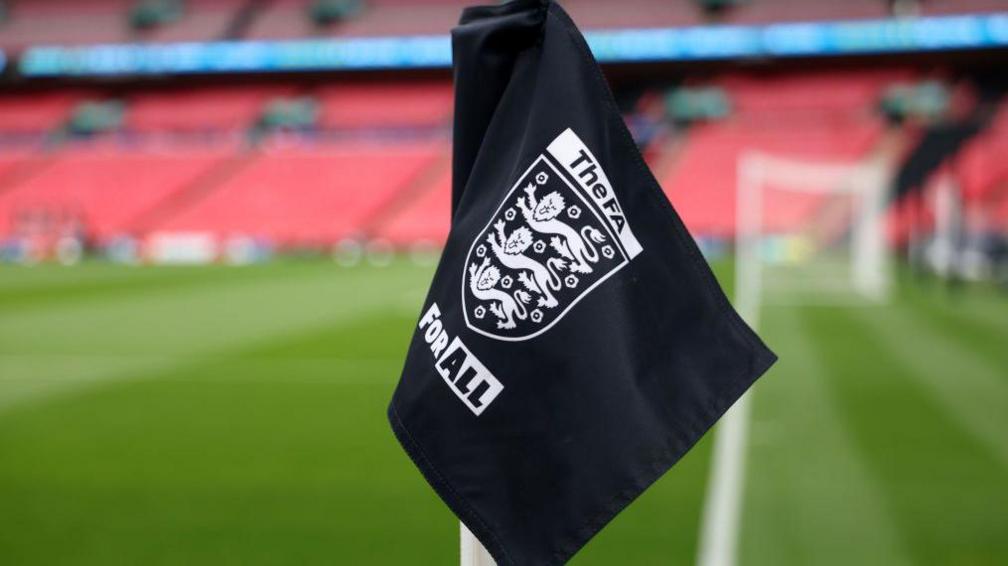The decision to allow transgender women to play in women’s football is being “carefully reviewed” by the English Football Association.
Since the landmark UK Supreme Court decision two weeks ago that the legal definition of a woman is based on biological sex under equalities law, the FA has been seeking legal counsel.
The Scottish Football Association’s decision to outlaw transgender women from playing women’s football was revealed earlier on Tuesday.
According to BBC Sport, the rules were updated earlier this month by English football’s governing body, but they could now be changed in a few days.
Similar to the Scottish FA (SFA), which takes testosterone levels into account and allows transgender women to compete in their affirmed gender category on a case-by-case basis.
However, new regulations now allow only those who were biologically female to compete in games north of the border starting next season to allow them to do so.
As sports organizations react to the Supreme Court’s decision, the FA has now been under pressure to do the same.
The Scottish FA had shown “wisdom” and “similar clarity from the FA is long overdue,” according to former FA Chairman Lord Triesman.
“The very notion that the FA can disregard the Supreme Court constitutes foolhardy contempt for the law.” He claimed that every day the situation gets worse.
We are taking legal advice, according to a spokesperson for the FA, and are reviewing our policy closely.
Football anti-discrimination group Kick It Out stated in a statement that it was “solidarity with the trans community” last week that the Supreme Court decision would have “far-reaching consequences.”
The SFA rule change will align with other sports that restrict women’s competition to those who haven’t reached male puberty, such as rugby, swimming, and athletics.
The governing body of snooker is reviewing its gender eligibility policy, while transgender women were banned from Ultimate Pool Group’s female category last week.
Since the Supreme Court’s decision, the England and Wales Cricket Board has been seeking legal counsel regarding its policy.
Transgender women are currently able to play both recreational cricket and cricket in tier three of the domestic structure, which includes traditionally lower-level counties.
Background
Before England’s November game against the Republic of Ireland at Wembley, campaigners demanded that the FA outlaw transgender women from the women’s game.
A teenage girl was banned from school for making offensive remarks to a transgender opponent in a grassroots match.
However, the FA’s updated trans policy allows biological males to play in the women’s game even if they have undergone “match observation” to determine whether they pose a threat to other players’ safety and fair competition.
Transgender women players must provide evidence that they have been on or off the testosterone level for at least 12 months, as well as a history of hormone therapy, as well as an annual evaluation of treatment.
However, a new formal procedure, which will require a player’s FA official to observe a match, will give the organization the authority to remove or decline players’ permission to play in the women’s game.
The FA announced earlier this month that its revised process will have “ultimate discretion” over eligibility and be managed “case by case”.
According to the FA, there are 20 transgender women playing amateur football in England out of the millions of people who compete there, compared to none in the Home Nations’ professional game.
48 MPs wrote a letter to the Football Association in December 2023 to “protect women and girls” in the game.
Following a rumored incident involving a transgender player who shot an opponent in the leg, several teams in Yorkshire withdrew from games against a recreational side.
Due to “an abundance of caution,” the Sutton United women’s team canceled a game against Ebbsfleet United in September 2024. Sutton signed transgender goalkeeper Blair Hamilton after he did so.
By appointing Lucy Clark, the first publicly transgender player in British football, the club made history in January 2024.
related subjects
- Football
Source: BBC

Leave a Reply